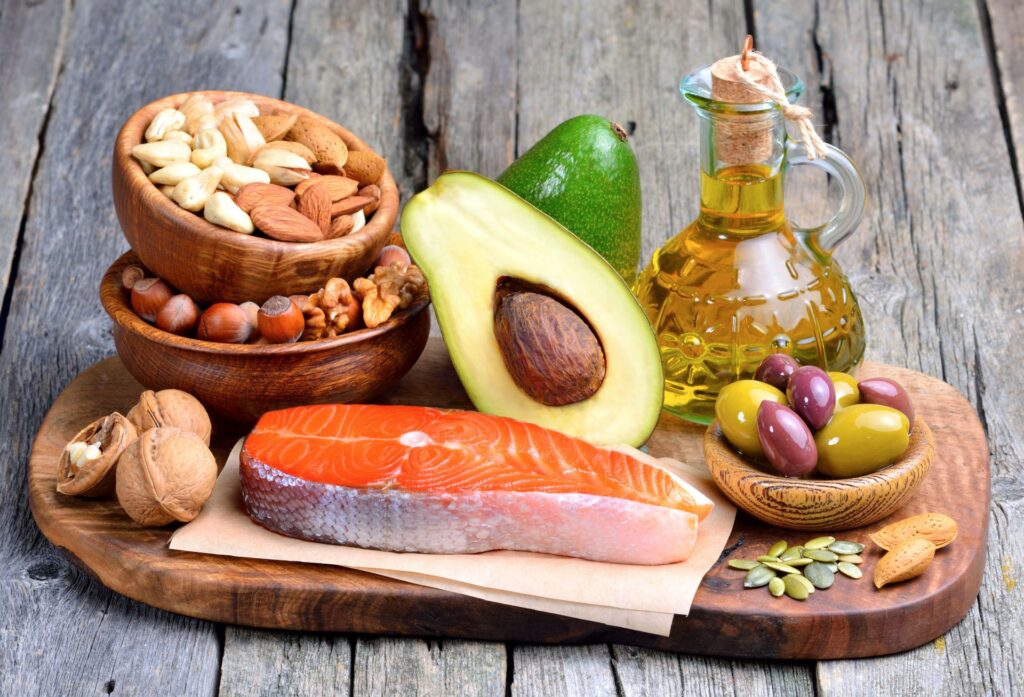Can Diet Affect Skin Health and Appearance?

It may be no surprise that diet and dermatology go hand in hand. Often, even routine doctor visits end up in suggested diet and lifestyle changes to improve overall health. The same goes for dermatology when it comes to skin health. Licensed professionals in dermatology may advise steering clear of certain foods that cause inflammation or are a likely culprit of skin concerns. Many skin conditions may worsen with certain foods, and a professional and experienced dermatologist can assess every client’s skin type and personal skincare concerns.
Therefore, when it comes to our skin, what we put in our bodies is a direct reflection of our skin’s appearance. However, there are times when diet modifications cannot resolve skin conditions. Some skin diseases require advice from a professional dermatologist. A thorough exam will be done, a diagnosis made, and a personal treatment plan provided. Only a licensed and highly qualified dermatologist can give an accurate diagnosis and offer solutions to address skincare concerns.
Which Skin Conditions Improve with Dietary Modifications?
Many skin conditions, like acne, rashes, and rosacea, can be improved through dietary and lifestyle changes. However, some severe cases do require treatment plans from a professional dermatologist. Diet and environment are known to have a significant role in the skin’s overall condition and are sometimes the cause.
Undeniably, certain foods are recommended to help improve skin health, and others should be avoided. Omega 3 is considered “good” fat, and foods containing Omega 3, along with foods proven to be anti-inflammatory and antioxidant-rich, can be easily incorporated into daily meals. Small dietary changes can have a noticeable effect on the skin’s glow while managing inflammations and breakouts.
The Good Fat: Omega 3
According to the Canadian Dermatology Association, eczema and psoriasis symptoms may be significantly reduced with increased consumption of foods with high Omega-3 fatty acids. Dermatologists agree that diet plays a significant role in your skin’s health and appearance. Acne, eczema, psoriasis, dry and flaky skin, and excessively oily skin can be improved by adding more Omega-3 rich foods into meals. The Omega 3 foods can improve not only the skin, but hair and nail health too!
The ”good” fatty acids help with cell membrane health, which acts as a barrier but also a way for nutrients to cross paths with waste and toxins on the way out. Clean and healthy cells mean clearer and healthier looking skin. Healthy cell membranes also allow water retention, keeping skin hydrated, resulting in moist, softer skin.
Anti-Inflammatory
Anti-inflammatory diets require lower insulin production, which involves avoiding high glycemic foods. Any insulin spikes can irritate the skin. Almost all skin conditions can be improved by steering clear of simple carbs like sugar and starchy foods. Many things that taste sweet and delicious (French fries, cupcakes, baked potatoes, pizza, etc..…) will affect your complexion’s appearance. Reducing these foods and figuring out what triggers worsening skin conditions can be an excellent tool for skin care.
To bring out your skin’s natural glow, eat foods like salmon, watermelon, green tea, tomatoes, carrots, avocados, olive oil, walnuts, oranges, and kale to keep your skin healthy and glowing.
Antioxidants
Aging skin benefits from diets rich in antioxidants. The top antioxidants suggested are tomatoes, blueberries, spinach, garlic, green tea, watermelon, and dark chocolate. Some suffer from too much acidity with excessive consumption of tomatoes, so food allergies and moderation should be part of any dietary changes.
Other concerns of acne and dull skin have also shown to benefit from increasing antioxidant rich foods in meals. Believe it or not, adding antioxidants has proven to strengthen the skin’s protective barrier making it less susceptible to sunburn (but please don’t skip the sunscreen)!
Be Patient for Long Lasting Skincare Beauty
Even though they work, diet changes may not show results for months. Unfortunately, many clients do not continue because the skin condition does not go away fast enough. However, be patient. Sticking with healthier and intentional food choices to improve skin health as your dermatologist recommends will reduce acne and inflammation and manage dry or oily skins. Milk is known to increase acne, so if you want to address acne issues with your skin, try cutting down or cutting out dairy. Teens with acne issues do well by avoiding dairy products!
Vitamin and Nutrient Rich Topical Treatments
Choosing topical products to address skin concerns may provide added benefits. Products containing Vitamin A will revitalize skin cells and increase cell turnover. So, more “out with the old” and more “in with the new” leaves skin glowing, looking healthier and more youthful. Any topical rich in vitamins can increase your skin’s barrier and provide extra protection against environmental factors. In the end, consulting an experienced and licensed professional is best. Only an expert in dermatology can identify underlying issues that can be addressed with diet, treatment plans, and skincare routines. Do not hesitate to find an excellent dermatologist in your area and make an appointment to achieve your skin’s optimal health and beauty!
Buckhead Dermatology offers exceptional personal service with an expansive list of services to fit any budget if you are in the Atlanta area.
